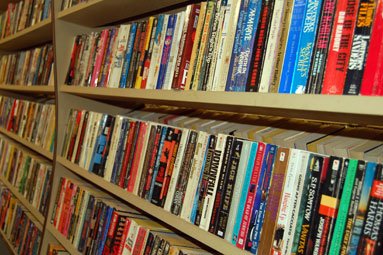“The more that you read, the more things you will know. The more that you learn, the more places you’ll go,” said Dr. Seuss, an American writer and cartoonist best known for his collection of children’s books. The poem I Can Read with My Eyes Shut was intended to demonstrate the benefits of reading.
The poem may not resonate that much in Cambodia, where reading rates are low compared to foreign averages – especially those of Americans, who always seem to travel with a book in hand. Laziness and illiteracy are often offered as explanations for the lack of a strong reading culture here.
But from my perspective, as a Cambodian who has lived in this country for almost 20 years, I figure the resources and opportunities afforded the average Cambodian may also have something to do with it.
Libraries are usually considered vast reservoirs of written knowledge, but how many Cambodians can truly access this invaluable resource?
In this article, we’ll discuss reasons preventing and discouraging Cambodian students from accessing libraries.
The first, and most important, reason is that the number of libraries in the Kingdom cannot fulfil the public’s demand.
Those living in remote areas don’t even have libraries in their village schools.
According to the website of Working for Children (WFC), a registered, non-profit charity committed to assisting at-risk children living in rural communities within Siem Reap province, “Most of the rural village schools need libraries. Some schools create makeshift libraries out of an unused classroom, while others keep books in boxes or bags.”
The website also notes that this problem often occurs in recently built schools that need to develop more.
Clearly, schools without a library need one. Even school with libraries rarely have librarians, often because they have only a handful of teachers as it is.
A primary school in my home town has been able to build a nice library with government and NGO support, but students hardly have a chance to access it because the door is usually locked.
The school has hired no librarians and the teachers are all busy, so the school director is forced to act as librarian when he gets a free moment, which is not often.
Having a teacher or school director working as librarian creates another barrier to accessing the library. As they already bear a responsibility to teach or manage the school, they may not want the students to read or borrow books because this creates more work –– sorting, lending and shelving – for them.
Librarians’ knowledge and attitude are also important. They should be friendly and eager to help students find the documents they need.
The opposite was true when I was in high school. I used to be scolded just for asking whether the library had a particular book.
Libraries should also update their documents regularly. This is not a huge issue for primary or high-school students, but students in university must be able to access the latest readings for their research.
In some libraries, most of the books are outdated because most are donated by foreign countries and little money is spent on buying new books. In a bookshop, study materials are always updated because patrons are spending money on them.
Opening hours can also be a limiting factor for student library access. Though some libraries have begun extending librarians’ working hours to attract more readers, others maintain a schedule that conflicts with the students’ classes. So, for example, libraries will shut their doors during lunch breaks and at weekends – the times when students are free to use them.
Some students also complain about regulations requiring them to wear uniforms whenever they enter the library. This poses the question: which is more important, wearing a uniform or gaining knowledge?
Some people go out for the day without planning to go to the library, but if in their free time they suddenly want to go, they will be denied access for lack of a uniform.
Comfort is also essential, and if a library intends to attract patrons, it should, at the very least, have a place where students can sit comfortably, with good lighting and no distracting noise.
LIFT interviewed Dr Ros Chantrabot, a writer as well as acting vice-president of the Royal Academy of Cambodia, about Cambodian literature and literacy.
“I don’t think Cambodian youth do not appreciate reading. The main point is that Cambodians don’t have enough reading resources.”
I think it will take time to change the reading habits of the average Cambodian.
Based on what Ros Chantrabot said, I’d say the first step is to extend the availability of resources by building more school libraries, and improving the facilities of those already in existence.
22/06/2011 By: Dara Saoyuth This article was published on LIFT, Issue 76 published on June 22, 2011
